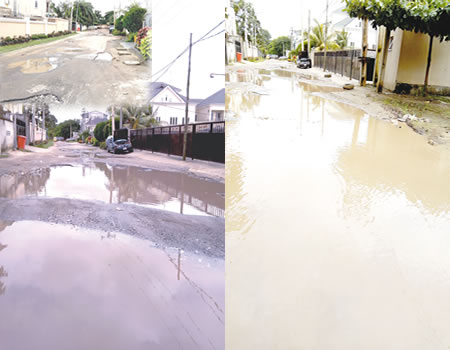Another main factor is illegal construction on the natural courses of major rivers that run across the state. The government looks the other way whenever the illegal construction goes on. The public officials in charge of urban and environmental planning have been compromised by desperate persons in the society and they are brazenly ineffective. Sadly, the same government that allowed this ugly state of affairs to prevail has now turned around wasting public resources on demolishing structures that should not have been allowed to spring up in the first place. And as the scarce resources that ought to be channeled into meeting other basic needs of the citizenry are being deployed into flood management and relief efforts, no one can state with any degree of certainty when things will become better.
The latest flooding after the 2012 disaster that left many deaths in its wake in most states of the federation affirms the general belief that the government’s response to the menace has been largely cosmetic and ineffectual. More often than not, official promises to take enduring measures are not kept, despite the stern warnings from the relevant agencies of government on the dire consequences of delay. Following this year’s seasonal rainfall forecast by the Nigerian Meteorological Institute (NIMET) in March and the outlook by the Nigeria Hydrological Services Agency (NIHSA), the National Emergency Management Agency (NEMA) had for instance urged the states to scale up their preparedness to avert imminent consequences. In any case, the expansion project of the Federal Government on the internal waterways has either been haphazardly done or abandoned altogether on the altar of partisan politics and grandstanding. The authorities have not demonstrated the political will, commitment and capacity to do the needful and confront the crisis headlong, and one consequence of the persistent crisis over the years is that many have lost hope, beholding no anchor for the foreseeable future.
Given the foregoing, all necessary sanctions as provided in the extant laws must be enforced in Benue and other states. At all times, the government must encourage proper planning that takes care of the future. It must move clearly beyond the immediate and cosmetic. There is no better time to do this than now when critical agencies like NIMET have spoken of ominous signs because of the huge volumes of water to be released shortly from the Lake Chad Basin. According to the Director General of NEMA, Mustapha Maihaja, this might lead to serious flooding along the River Niger and its tributaries in Kebbi, Niger, Kogi, Anambra, Delta, Imo, Rivers and Bayesla states. And as confirmed by NIHSA, there have been rising water levels in the Niger at “orange alert level,” the second most severe category in measurement, consistently for the past few days.
We urge state governments to take precautionary measures while the citizens, especially those residing in flood-prone plains across the country, are duty-bound to heed official warnings. The loss of lives, food insecurity and humanitarian crisis being witnessed presently in Benue and some other states in the North demand no less. Meanwhile, the menace of flooding and other ecological disasters calls to mind the issue of the Ecological Fund. The various affected state governments must be made to account for the huge funds released to them annually for that purpose. No amount of condolence visits or tokenism, as is often exhibited during seasons of disaster, can assuage the trauma of the citizenry. In the meantime, we urge the Federal Government and the Benue State government to ensure that the victims of the latest flooding in the state have easy access to relief while contingency plans are being made for better accommodation.






